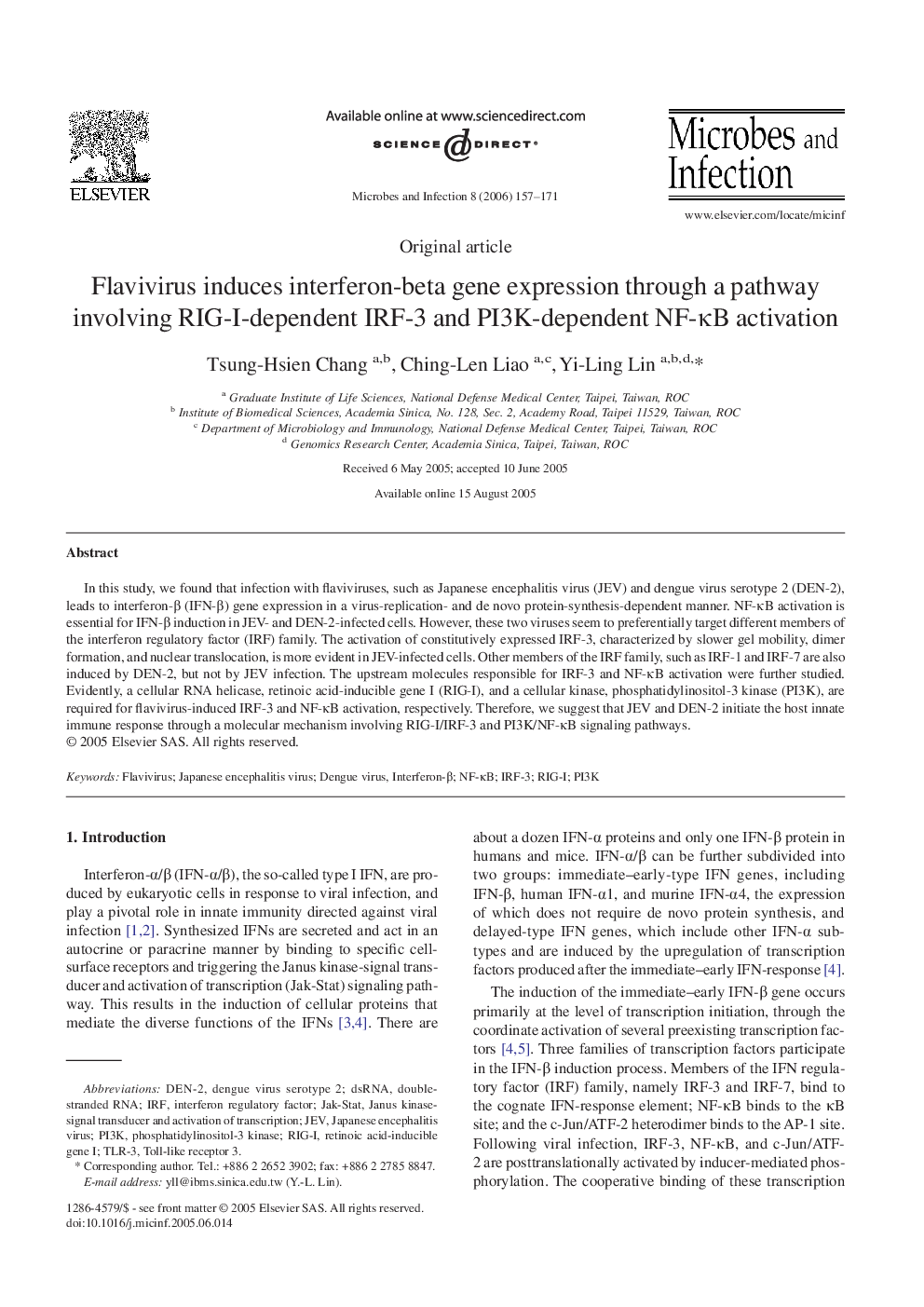| کد مقاله | کد نشریه | سال انتشار | مقاله انگلیسی | نسخه تمام متن |
|---|---|---|---|---|
| 3415721 | 1224976 | 2006 | 15 صفحه PDF | دانلود رایگان |

In this study, we found that infection with flaviviruses, such as Japanese encephalitis virus (JEV) and dengue virus serotype 2 (DEN-2), leads to interferon-β (IFN-β) gene expression in a virus-replication- and de novo protein-synthesis-dependent manner. NF-κB activation is essential for IFN-β induction in JEV- and DEN-2-infected cells. However, these two viruses seem to preferentially target different members of the interferon regulatory factor (IRF) family. The activation of constitutively expressed IRF-3, characterized by slower gel mobility, dimer formation, and nuclear translocation, is more evident in JEV-infected cells. Other members of the IRF family, such as IRF-1 and IRF-7 are also induced by DEN-2, but not by JEV infection. The upstream molecules responsible for IRF-3 and NF-κB activation were further studied. Evidently, a cellular RNA helicase, retinoic acid-inducible gene I (RIG-I), and a cellular kinase, phosphatidylinositol-3 kinase (PI3K), are required for flavivirus-induced IRF-3 and NF-κB activation, respectively. Therefore, we suggest that JEV and DEN-2 initiate the host innate immune response through a molecular mechanism involving RIG-I/IRF-3 and PI3K/NF-κB signaling pathways.
Journal: Microbes and Infection - Volume 8, Issue 1, January 2006, Pages 157–171